What is docking?
•Docking is the process by
which two molecules fit together in 3D space.
•Three-dimensional
molecular docking is one of the foundations of structure-based drug design. Often, data are available for the shape of a protein and a drug separately, but not for the two together.
There are many ways for docking of molecules bu here i explain discovery studio.for download products of accelrys click here.
For more online docking software please check my software section.
For more online docking software please check my software section.
Docking with discovery studio 2.1
1. Open PDB (Receptor) file from Files option.
NOTE : PDB file of any protine can be downloaded from protine Data Bank www.rcsb.org
2. Open View and click on hierarchy .
3. Add Hydrogen molecules from chemistry in receptore file.
4. Go
to tools and select the reseptor and in protein
report utility click on split all
5. Apply
forcefield to receptor molecule
.
6. Save that file as a *.msv file Formate.
7. Open original PDB file in new window.
8. Find Binding site from the receptor
9. Insert ligand file from file à insert à from file
10. Go
in view and click on tile molecules in view
11. select the protocol Ligand Fit from receptore ligand interaction.and set the parameter as describe below
12. Click on RUN to run ligandFit docking protocol.
13. Docking is running…………….
14. Results
Your final result has been display and you can able to check the results description by using analyse ligand pose...


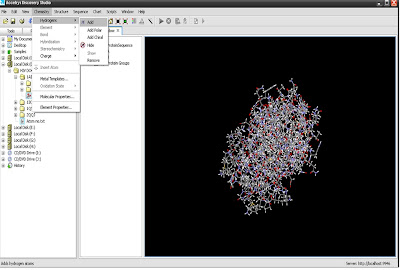

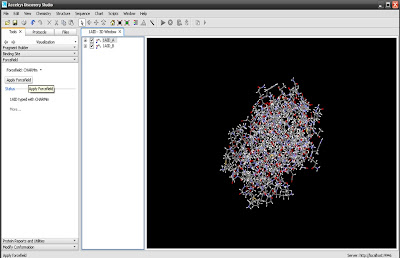



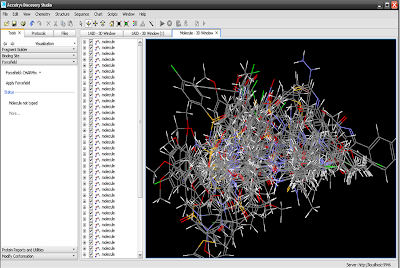


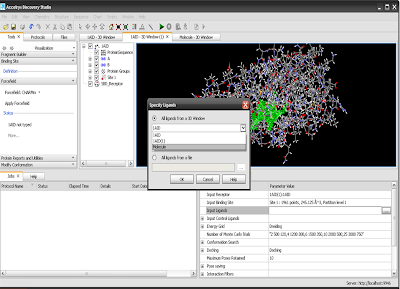
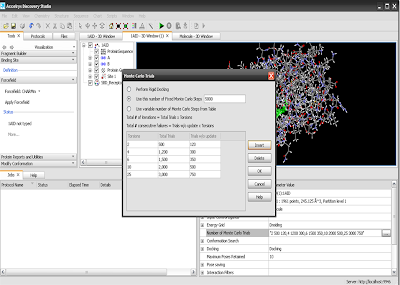





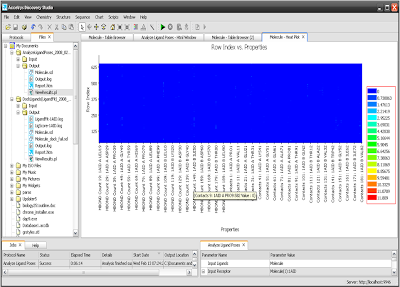
No comments:
Post a Comment